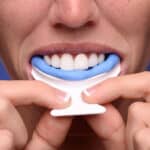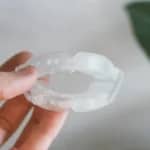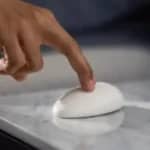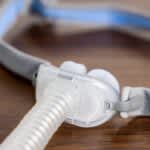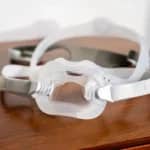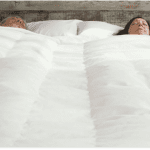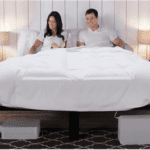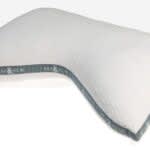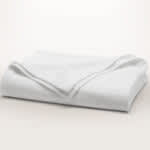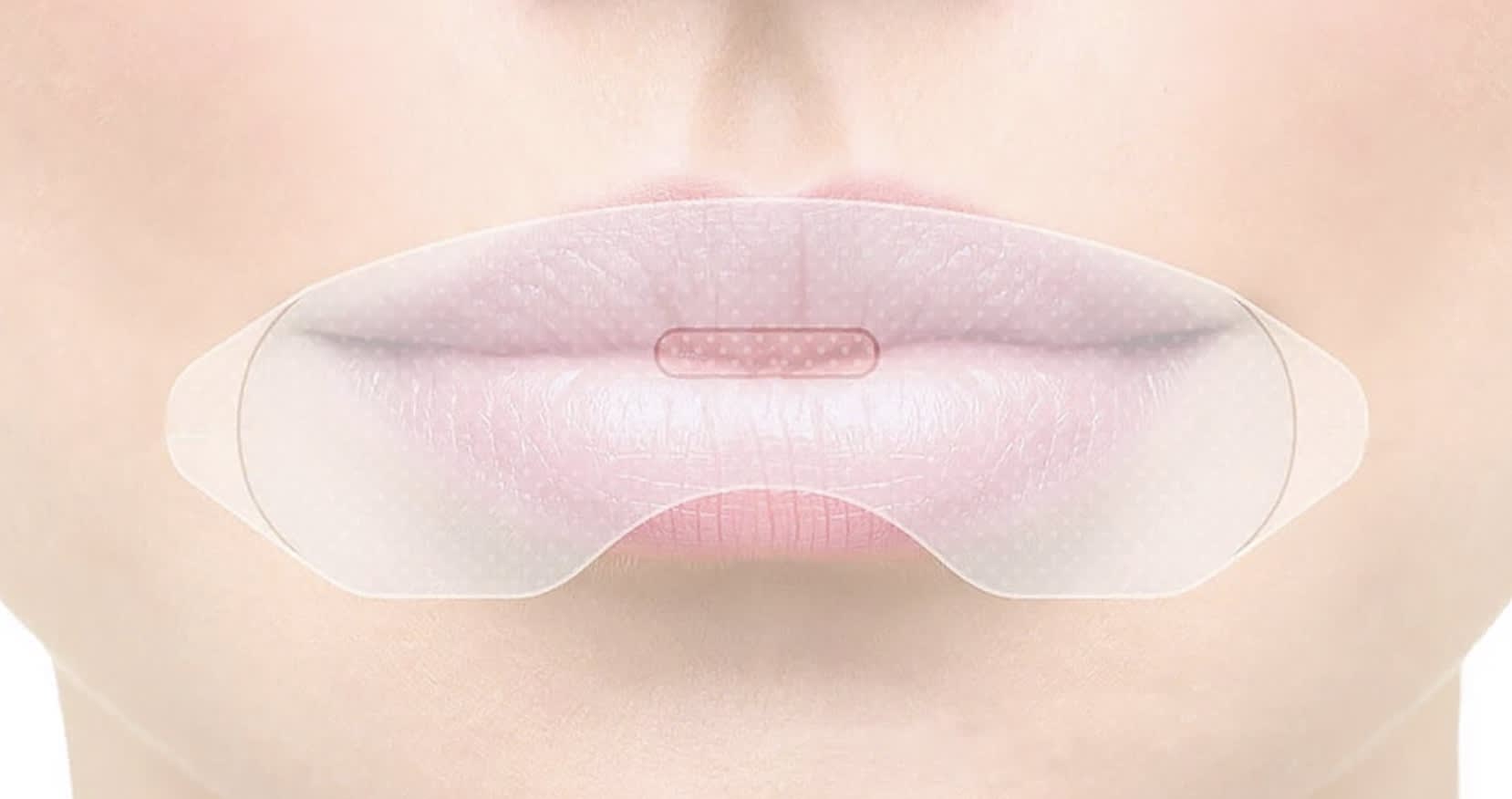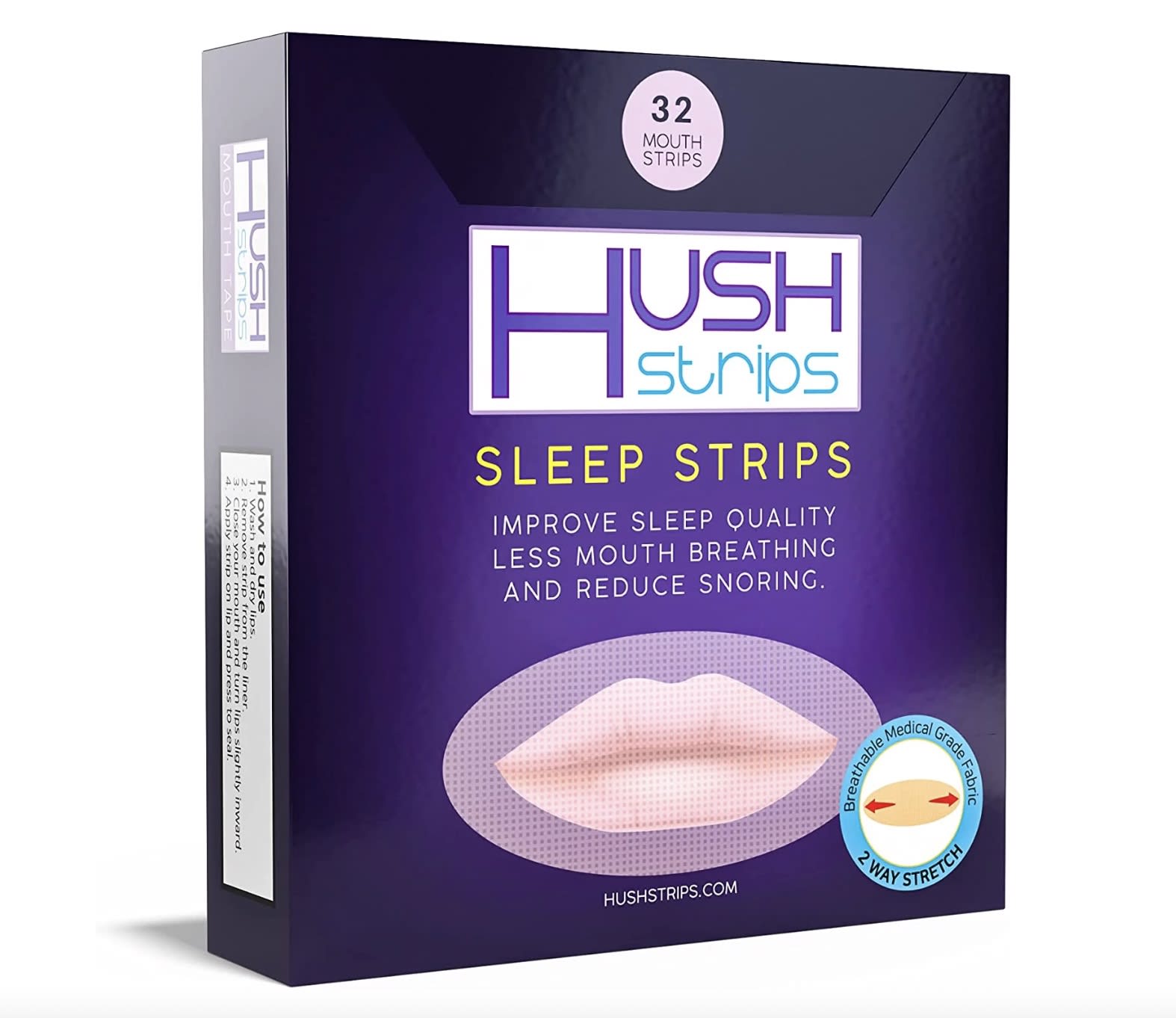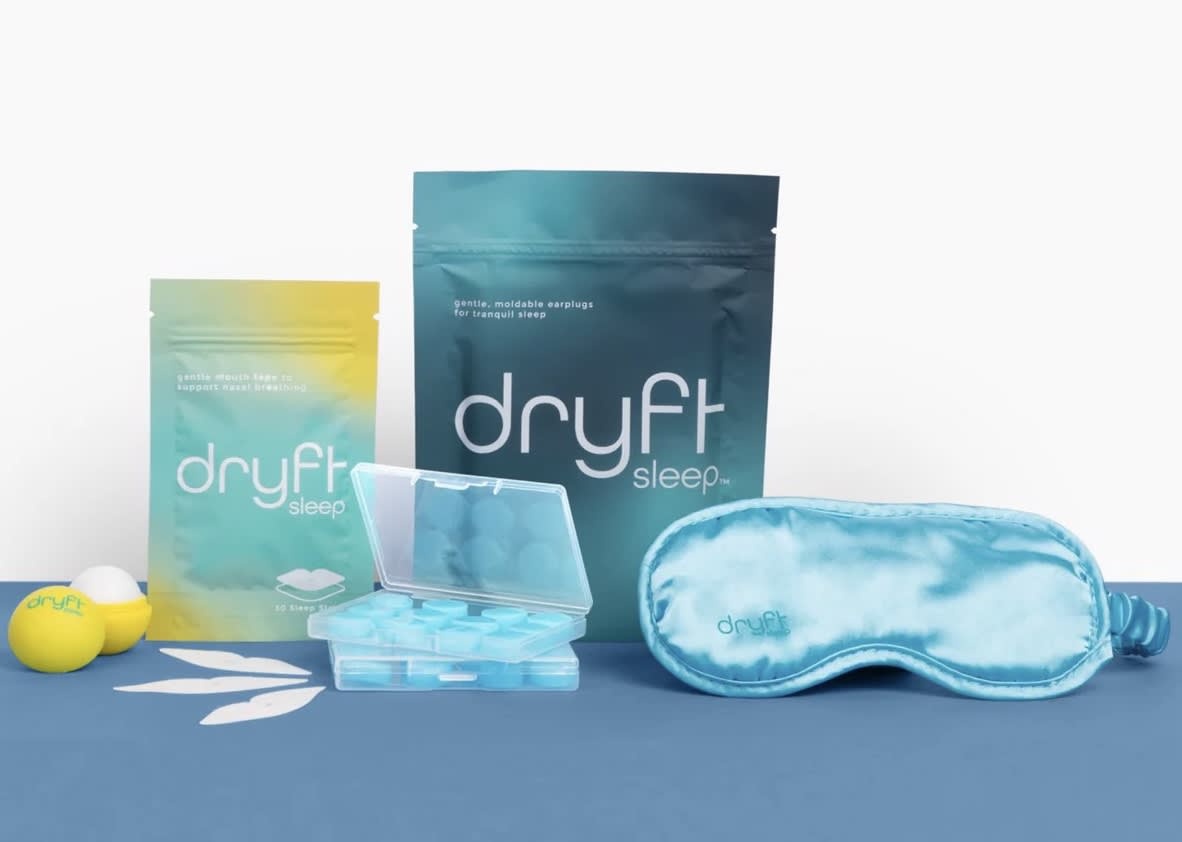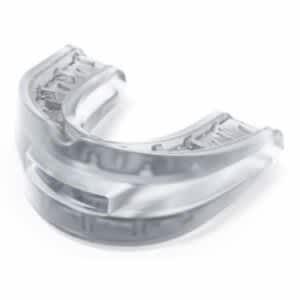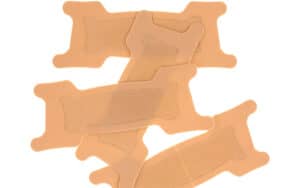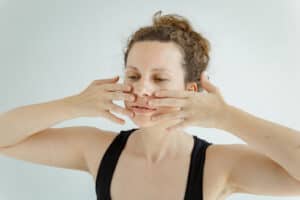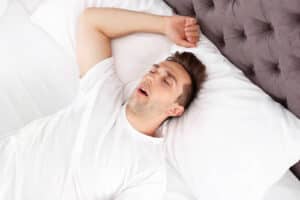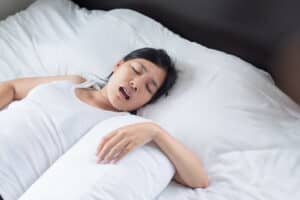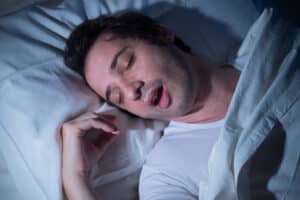A growing number of social media influencers are taping their mouths shut at night to get better sleep. Proponents of this method claim that by forcing themselves to breathe through the nose, wearing mouth tape to bed prevents dry mouth, reduces snoring, and helps them get better sleep.
While the internet is full of anecdotes about the benefits of mouth tape for sleep, only a few studies have explored the practice. We look at what science has to say about this viral trend.
Key Takeaways
- Mouth taping is an unconventional approach to address snoring.
- Surgical tape can be used to keep the mouth shut and encourage nasal breathing.
- Mouth taping for obstructive sleep apnea has produced mixed results and may not be suitable for everyone.
- Consult with a healthcare professional to determine the most appropriate treatment for your snoring and sleep-related issues.
What Is Mouth Taping?
People who practice mouth taping for sleep often use porous surgical tape to keep their mouths closed at night. The tape holds the mouth shut, forcing them to breathe through the nose. Some people believe that this prevents health problems associated with mouth breathing and provides a variety of benefits.
The Potential Benefits of Mouth Taping
More research is needed to understand the benefits and drawbacks of using mouth tape for sleep. Although TikTok and Instagram are full of posts praising mouth taping, sleep experts have done little research into the practice. Despite a lack of scientific evidence, some people claim that the benefits of mouth taping include:
- Deeper sleep
- An end to dry mouth
- Improved dental health
- Fewer symptoms of asthma
- Less snoring
Researchers have also begun studying how mouth taping may affect people who mouth breathe, as well as those who have asthma or obstructive sleep apnea.
Negative Effects of Mouth Breathing
Some individuals who use mouth tape for sleep do so to avoid the negative effects of mouth breathing. Mouth breathing is associated with certain health conditions, particularly in children. Kids who are chronic mouth breathers are more likely to develop sleep disorders and dental problems. Breathing through the mouth may also cause:
- Dry mouth
- Bad breath
- Dry, cracked lips
- A stuffy or runny nose
- Problems with speaking or swallowing in children
- Gum disease
However, there is currently no scientific proof that mouth tape can prevent these or any health problems due to a lack of research.
Does Mouth Taping Help Asthma?
Mouth taping is sometimes used as a part of the Buteyko breathing technique (BBT) program. BBT is a drug-free alternative treatment for asthma symptoms that emphasizes taking slow breaths and breathing through the nose.
A few studies have found that BBT treatment as a whole might improve quality of life for individuals with asthma. However, mouth taping alone may not be helpful at reducing symptoms or improving sleep.
Despite the limited evidence for mouth taping, some experts think nose breathing might be beneficial for people with asthma. Breathing through the nose keeps the nasal passages moist and filters out irritants that could act as potential triggers.
Studies suggest that people with asthma who breathe through their nose may wake up less often and get better rest. Mouth breathing has been shown to worsen asthma symptoms and make breathing more difficult. People considering BBT or mouth taping to help with asthma should talk with a doctor.
Does Mouth Tape Help With Sleep Apnea?
There is some evidence that sleeping with mouth tape on might help some people with obstructive sleep apnea (OSA).
OSA is a sleep disorder that causes a person’s airway to become blocked while they sleep. People with OSA stop breathing for numerous brief moments as they sleep. They tend to snore between pauses in breathing and may wake up many times throughout the night. As a result, individuals with untreated OSA do not get high-quality sleep and often feel tired during the day.
Only a few studies exploring mouth taping for sleep apnea exist, and they have produced mixed results. Experiments using porous surgical patches suggest that closing the mouth with sleep tape or similar products during sleep might help people with mild OSA snore less.
A more promising study found that when mouth-breathers with OSA wore mouth tape to bed, the number of pauses in breathing they experienced was nearly cut in half. However, the study only involved 20 participants, and further research is needed.
How to Tape Your Mouth Safely
Sleep experts have not yet studied the risks of mouth taping or created guidelines for how it can be done safely. If you want to try mouth taping for sleep, talk with your doctor first. They can suggest safe, scientifically proven ways to get better rest, stop snoring, or prevent bad breath.
If you suspect you have obstructive sleep apnea, it’s important to discuss symptoms like loud snoring, gasping for breath during sleep, and morning headaches with your doctor rather than try at-home remedies.
Researchers and people who practice mouth taping as part of the BBT program use porous surgical tape that is safe for use against delicate skin. Another type of mouth tape available surrounds the mouth instead of covering it. This type of tape helps keep the mouth closed using tension created by elastic, but allows a person to open their mouth at any time.
Do not use duct tape or other varieties that contain strong adhesives to tape your mouth closed. Only hypoallergenic tape that is meant for medical use should be used on the skin.
Is Sleeping With Your Mouth Open a Health Risk?
Answer three questions to understand if you should be concerned.
Considerations Before Taping Your Mouth
Some people may find mouth tape too uncomfortable to gain any of the practice’s purported benefits. This unpleasant sensation might be enough to disrupt sleep. Other reported drawbacks to mouth taping include:
- A feeling of being suffocated
- Sore lips
- An “unnatural” or strange sensation
- General discomfort
- Difficulty breathing
- Embarrassment
Although chronic mouth breathing may lead to health problems, covering the mouth could be a bad idea for individuals with conditions that cause nasal congestion or respiratory blockages. For example, when a person with OSA’s upper airway becomes blocked, they may choke or gasp to draw oxygen into their lungs. They cannot do so if their mouth is taped shut.
Until experts know more about using mouth tape for sleep, consider a tried-and-true method for getting better rest. There are many safe, scientifically proven options for improving sleep quality and overall health.
Alternatives to Mouth Taping
If you are interested in mouth taping but unsure if it’s the right choice for you, consider exploring some alternatives.
- Discuss Sleep Problems With Your Doctor: Before you start taping your mouth shut for sleep, talk to your health care provider about why you want to use mouth tape. If they suspect OSA, they may recommend a sleep study and a more effective treatment for your concerns, such as medication, lifestyle changes, or CPAP therapy. Let them know if a medication or supplement you are taking is keeping you up at night.
- Make an Appointment With the Dentist: If oral health concerns, like bad breath or gum disease, have you considering mouth tape, pay your dentist a visit. They can determine if mouth breathing, or something else, is the cause of your problems.
- Reduce Snoring With Lifestyle Changes: Snoring is not always a sign of sleep apnea. Obesity, alcohol, certain medications, and smoking can all trigger snoring. If you do not have OSA and are thinking of trying mouth tape to stop snoring, consider losing weight, quitting smoking, or cutting back on alcohol instead.
- Treat Nasal Congestion: Respiratory infections and allergies can lead to mouth breathing, especially when left untreated. While over-the-counter medications are helpful for reducing occasional congestion, a health care provider should address chronic or severe respiratory allergies.
- Improve Your Sleep Habits: Try adopting better sleep hygiene, or positive sleep-related habits. Get plenty of exercise during the day and maintain a consistent, relaxing bedtime routine at night. Avoid consuming caffeine and alcohol before bed.
References
The Sleep Doctor Forum: Real Experiences, Real Connections
Continue the discussion on the Sleep Doctor Forum. Connect with experts and fellow forum members on CPAP, sleep apnea, and all things sleep. A priceless resource that’s free to join.



